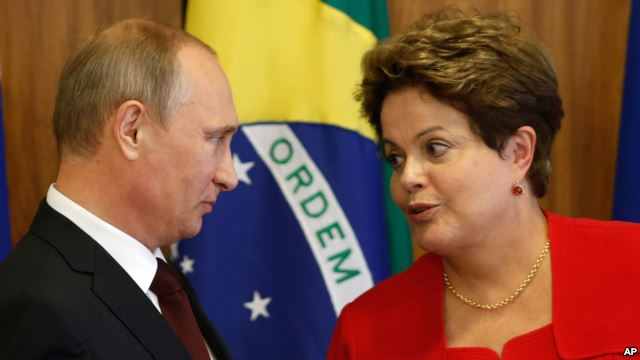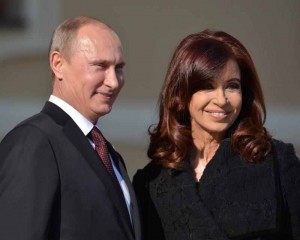
LatAm stands to profit from Russia’s food ban
Vladimir Putin’s trip to Latin America last month is proving useful in the face of the economic sanctions that the West — led by the United States — has imposed on Russia.
Talks are ongoing between Moscow and the governments of Brazil, Argentina, Ecuador and Chile to boost those countries’ exportation of foodstuffs to Russia, now that Russia has decided not to buy food from countries that are pressuring it economically, financially and politically.
The ban will last one year, the Kremlin said on Wednesday (Aug. 6). It will involve dairy products, seafood, meat, sausages, vegetables and fruit from the U.S., the European Union, Canada, Australia and Norway.
Those pressures were in response to Russia’s support for the pro-Russian separatists in Crimea and eastern Ukraine.
Also on Wednesday, the Brazilian Association of Animal Protein announced that it’s ready to replace the United States as a supplier of poultry to Russia.
“Brazil’s meat industry is ready to take advantage of Moscow’s ban of farm imports from the United States and will send more poultry to Russia,” said the association’s president, Francisco Turra, to the press.
“We have a very large capacity to do so,” he said. He added that 20 poultry farms in Brazil have already been cleared to do business with Russia. Ninety-one Brazilian food manufacturers were authorized by Moscow as suppliers and it’s expected that many more will join the list.

According to Turra, Brazil plans to send 210,000 tons of poultry this year. Last year’s export volume was 60,000 tons.
On Wednesday, Russia lifted all restrictions on dairy and meat imports from Brazil. And Russia’s Federal Service for Animal and Plant Control said that it will consider importing Ecuadorean fruits, vegetables and seafood “if product safety can be guaranteed.”
Chile is a major producer of the same products. Russia’s Foreign Minister, Sergei Lavrov, visited that country in early May.
In Argentina, the Meat Industry Chamber announced that it has begun talks with Moscow on the increased exportation of beef.
Talks will continue this week between the four Latin American countries and Russia’s food control agency.
Russia is already negotiating increases in food imports from Belarus and other former Soviet republics.


